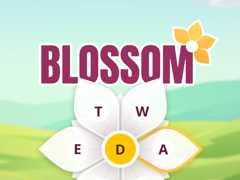noun
adjective
- noun2
Did you know?
Example Sentences
Word History
Phrases Containing
Entries Near
Related Articles
- To save this word, you'll need to log in.
Did you know?
What is anadjective?
Adjectives describe or modify—that is, they limit or restrict the meaning of—nouns and pronouns. They may name qualities of all kinds:huge,red,angry,tremendous,unique,rare, etc.
An adjective usually comes right before a noun: "ared dress," "fifteen people." When an adjective follows alinking verb such asbe orseem, it is called apredicateadjective: "That building ishuge," "The workers seemhappy." Most adjectives can be used as predicate adjectives, although some are always used before a noun. Similarly, a few adjectives can only be used as predicate adjectives and are never used before a noun.
Some adjectives describe qualities that can exist in different amounts or degrees. To do this, the adjective will either change in form (usually by adding-er or-est) or will be used with words likemore, most, very, slightly, etc.: "theolder girls," "thelongest day of the year," "avery strong feeling," "more expensive than that one." Other adjectives describe qualities that do not vary—"nuclear energy," "amedical doctor"—and do not change form.
The fourdemonstrativeadjectives—this,that,these, andthose—are identical to thedemonstrativepronouns. They are used to distinguish the person or thing being described from others of the same category or class.This andthese describe people or things that are nearby, or in the present.That andthose are used to describe people or things that are not here, not nearby, or in the past or future. These adjectives, like thedefinite andindefinite articles (a,an, andthe), always come before any other adjectives that modify a noun.
Anindefiniteadjective describes a whole group or class of people or things, or a person or thing that is not identified or familiar. The most common indefinite adjectives are:all, another, any, both, each, either, enough, every, few, half, least, less, little, many, more, most, much, neither, one (andtwo, three, etc.),other, several, some, such, whole.
Theinterrogativeadjectives—primarilywhich,what, andwhose—are used to begin questions. They can also be used asinterrogativepronouns.
Which horse did you bet on? =Which did you bet on?
What songs did they sing? =What did they sing?
Whose coat is this? =Whose is this?
Thepossessive adjectives—my,your,his,her,its,our,their—tell you who has, owns, or has experienced something, as in "I admiredher candor, "Our cat is 14 years old," and "They saidtheir trip was wonderful."
Nouns often function like adjectives. When they do, they are calledattributive nouns.
When two or more adjectives are used before a noun, they should be put in proper order. Any article (a,an,the), demonstrative adjective (that,these, etc.), indefinite adjective (another,both, etc.), or possessive adjective (her,our, etc.) always comes first. If there is a number, it comes first or second. True adjectives always come before attributive nouns. The ordering of true adjectives will vary, but the following order is the most common:
opinion word→size→age→shape→color→nationality→material.
Participles are often used like ordinary adjectives. They may come before a noun or after alinking verb. Apresent participle (an-ing word) describes the person or thing that causes something; for example, aboring conversation is one that bores you. Apast participle (usually an-ed word) describes the person or thing who has been affected by something; for example, abored person is one who has been affected by boredom.
They had just watched anexciting soccer game.
The instructions wereconfusing.
She'sexcited about the trip to North Africa.
Severalconfused students were asking questions about the test.
The lake wasfrozen.
Examples ofadjective in a Sentence
Word History
Noun
Middle Englishadjectif, borrowed from Anglo-French & Late Latin; Anglo-Frenchadjectyf, borrowed from Late Latinadjectīvum, from neuter ofadjectivusadjectiveentry 2 (as translation of Greekepítheton)
Adjective
Middle Englishadjectif, borrowed from Anglo-French & Late Latin; Anglo-Frenchadjectyf, borrowed from Late Latinadjectīvus, from Latinadjectus (past participle ofadjicere "to throw at, attach, contribute, add to (in speech or writing)," fromad-ad- +jacere "to throw") +-īvus-ive — more atjetentry 3
Noun
14th century, in the meaning definedabove
Adjective
15th century, in the meaning defined atsense 1
Phrases Containingadjective
Browse Nearby Words
Cite this Entry
“Adjective.”Merriam-Webster.com Dictionary, Merriam-Webster, https://www.merriam-webster.com/dictionary/adjective. Accessed 24 Oct. 2025.
Kids Definition
adjective
nounMore from Merriam-Webster onadjective
Nglish:Translation ofadjective for Spanish Speakers
Britannica.com:Encyclopedia article aboutadjective
Subscribe to America's largest dictionary and get thousands more definitions and advanced search—ad free!
Merriam-Webster unabridgedMore from Merriam-Webster
[8]ページ先頭



